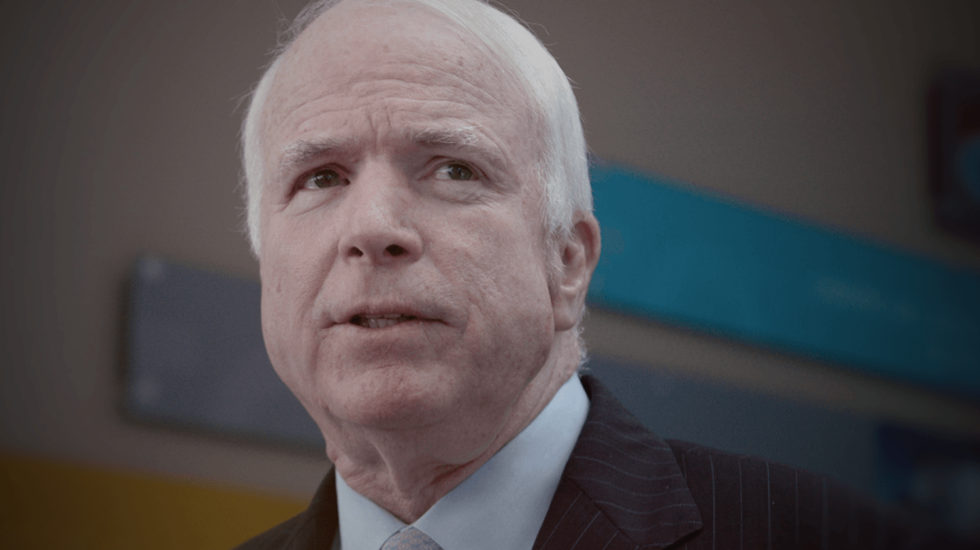Former Republican presidential nominee John McCain today slammed President Trump, the White House, and Congressional Republicans for releasing the Nunes memo, a House Intelligence Committee document that purports to show misconduct on the part of FBI investigators in their handling of Russia probe. The the memo is hoped by Trump supporters to substantiate confirmation of bias against the president by officials he himself appointed. Detractors across the political spectrum see the memo’s release as a dangerous precedent, disclosing confidential national security information recklessly and for narrow political purposes–not to mention, it undermines law enforcement officials, the FBI’s historic independence, and, more generally, the rule of law itself.
Upon release of the memo at the president’s order, McCain, the former Naval aviator, released a scathing statement critical of the move. “Elected officials, including the president, must stop looking at this [Russia] investigation through the warped lens of politics and manufacturing partisan sideshows,” McCain said. “The latest attacks on the FBI and Department of Justice serve no American interests — no party’s, no president’s, only Putin’s.”
The ailing 81-year-old senator has clashed with Trump several times, providing the decisive vote last year to block the repeal of Obamacare. For his part, Trump during the Republican primaries criticized McCain for being captured and held as a prisoner of war in Vietnam.
McCain’s criticism is the harshest so far among Republicans, but he is not the only one to object to this latest attack on the FBI’s independence. Yesterday, South Dakota Republican Senator John Thune, unlike McCain a creature of the party’s establishment, urged the White House to show restraint. And FBI director Christopher Wray himself released an unprecedented statement citing “grave concerns” about the contents of the four-page memo. (On the flip side, House Speaker Paul Ryan supported Nunes, saying the memo would provide a useful “disinfectant” to alleged bias within the law enforcement bureau.)
The controversy over the memo threatens to undermine confidence in the nation’s law enforcement and national security community, but it also threatens something else: Republican unity in support of the president. Will McCain’s response to this memo signal a new phase of resistance, now for the first time within the ranks of the Republican Congress itself? Given how docile they’ve been so far, it’s almost too much to hope for.



